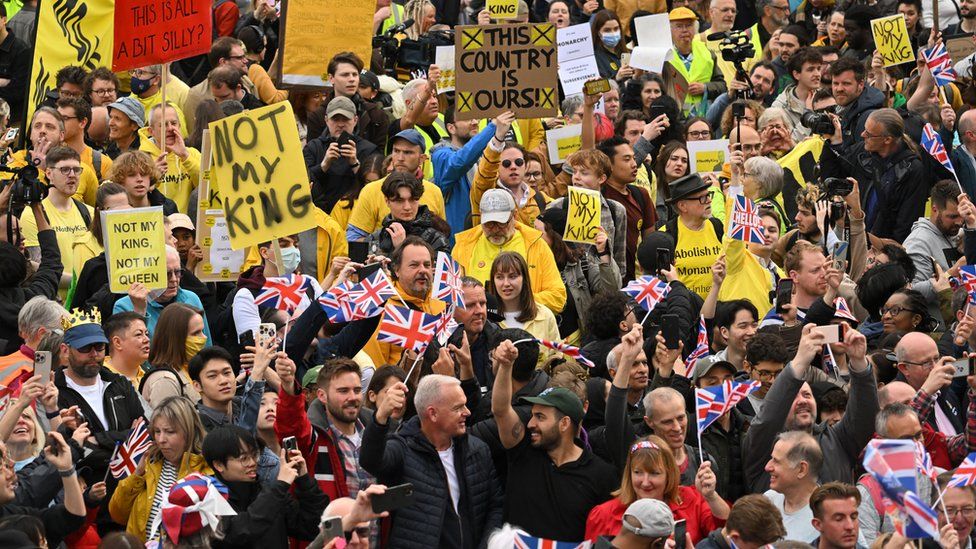ARTICLE AD BOX
 Image source, PA Media
Image source, PA Media
MPs will consider later whether an inquiry is needed into how protests at the King's Coronation were policed.
A committee will meet on Wednesday to discuss the protests, including the arrests of six people from anti-monarchy group Republic.
Sir Mark Rowley, head of the Met, has defended his officers and said there was a "concerning" threat to the event.
But concerns have been raised about the implementation of a new law by frontline officers.
A group of six anti-monarchy protesters, including the chief executive of anti-monarchy group Republic, Graham Smith, was arrested on the day of King Charles III's coronation under a controversial new law - the Public Order Act 2023.
They were held for almost 16 hours, later bailed and told on Monday that no further action would be taken against them.
Sir Mark said the Met had had growing concerns that protesters would use rape alarms, possible lock-on devices, loud hailers and vandalise monuments during the procession.
"Clearly, this would not only have been unlawful, but also extremely dangerous," he wrote in the Evening Standard newspaper on Tuesday.
Labour's Diana Johnson, who chairs the cross-party Home Affairs Select Committee, will call for an inquiry on Wednesday to look at whether any lessons could be learned.
"That issue of how protests were policed is something that has raised concerns, particularly about the implementation of this very new act of parliament... which seems to be at the core of why members of Republic were arrested," she told BBC Radio 4's Today Programme.
"We will want to consider whether we want to spend some time looking at those particular issues, recognising of course that this was a huge policing operation over the weekend to keep people safe and was very successful."
She also questioned whether frontline officers knew what had been agreed between the Met Police and Republic following months of negotiations about the planned protest.
But former Met assistant commissioner Helen King said public safety was "right up near the top" of priorities for officers along the procession route on Saturday, adding that difficult decisions had to be made by officers who "don't have the benefit of hindsight".
"For the frontline officer, they've got a very difficult decision they have to make quickly, usually with imperfect and partial information", she told the BBC.

 1 year ago
32
1 year ago
32








 English (US)
English (US)